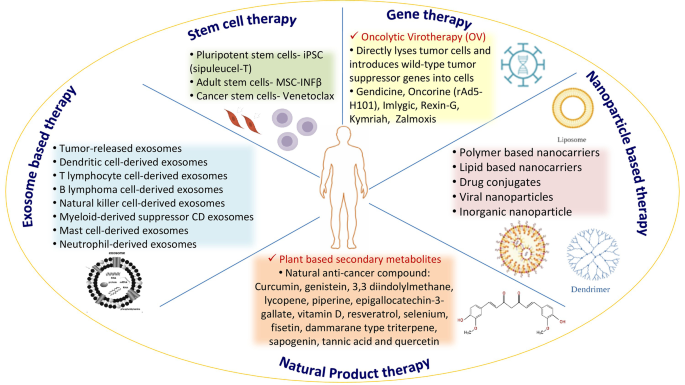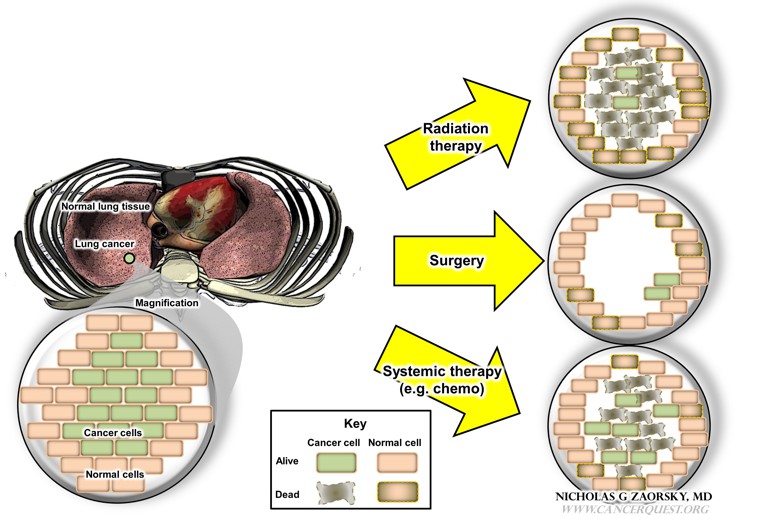The Basic Principles Of Arogyajivan Medical Tourism For Oncology
The Basic Principles Of Arogyajivan Medical Tourism For Oncology
Blog Article
Not known Details About Arogyajivan Medical Tourism For Oncology
Table of ContentsLittle Known Facts About Arogyajivan Medical Tourism For Oncology.Some Known Details About Arogyajivan Medical Tourism For Oncology The Only Guide for Arogyajivan Medical Tourism For OncologyArogyajivan Medical Tourism For Oncology for DummiesThe 25-Second Trick For Arogyajivan Medical Tourism For Oncology9 Simple Techniques For Arogyajivan Medical Tourism For OncologyArogyajivan Medical Tourism For Oncology Things To Know Before You Buy
If you have cancer cells, your health and wellness care provider will certainly suggest one or more methods to treat the disease. One of the most typical treatments are surgical procedure, radiation treatment, and radiation. Various other options include targeted therapy, immunotherapy, laser, hormone therapy, and others. Right here is an introduction of the various therapies for cancer and just how they work.Cancer cells grow and split faster than normal cells in the body. Because radiation is most hazardous to swiftly growing cells, radiation treatment problems cancer cells a lot more than regular cells. It utilizes compounds made by the body or in a lab to aid the immune system work harder or in an extra targeted means to fight cancer.
Some have toxic substances or radioactive substances affixed to them. Immunotherapy is provided by IV. Hormone therapy is made use of to treat cancers that are sustained by hormones, such as breast, prostate, and ovarian cancers. It utilizes surgical treatment, or medicines to stop or obstruct the body's natural hormones. This aids slow down the growth of cancer cells.
Thin fibers at the end of television direct the light at the cancer cells. Lasers are likewise utilized on the skin. Lasers are frequently made use of with various other types of cancer treatment such as radiation and chemotherapy. In photodynamic therapy, an individual obtains a shot of a medicine that is delicate to an unique sort of light.
Our Arogyajivan Medical Tourism For Oncology Ideas

An oncologist is a cancer cells physician. These doctor concentrate on oncology the branch of medication that concentrates on diagnosing, hosting and treating cancer cells. AdvertisementCleveland Center is a charitable scholastic clinical. Advertising on our website aids support our goal. We do not endorse non-Cleveland Center products or services. A check out to an oncologist offers you a possibility to speak with a professional that comprehends what you're undergoing.
They're ready to aid, and they'll walk with you every step of the method. Oncologists can: Run evaluates to identify cancerOffer a 2nd point of view on a previous diagnosisIdentify therapy optionsDiscuss each option's benefits and side effectsOversee cancer treatmentManage post-treatment care Seeing an oncologist doesn't always suggest you have cancer. An oncologist gets included if you have signs and anchor symptoms that may be cancer.
Some Known Details About Arogyajivan Medical Tourism For Oncology
Several cancers are a lot more treatable in the very early stages. Cancer cells is an intricate condition.
The majority of clinical oncologists likewise focus on hematology (the link medical diagnosis and treatment of blood conditions and blood cancers cells). These healthcare suppliers use radiation treatment to treat cancer. Radiation can reduce growths before surgery or eliminate remaining cancer cells after surgery. You may have radiation as a stand-alone treatment or in mix with various other treatments.
Arogyajivan Medical Tourism For Oncology Things To Know Before You Get This
Do I have cancer? Exactly how long have I had it? What will my life appear like currently? If these are the inquiries competing through your mind, you're not the only one. Your oncologist is below to help you navigate these emotions. During your initial check out, your oncologist will: Ask you to explain your symptoms in detailDo a checkupEvaluation your medical records, including family members background and any past or current health and wellness conditionsRun any required examinations (like imaging tests or laboratory job) to get more information regarding your symptomsDetermine whether you require a biopsyOnce your oncologist collects the details they require, they'll: Discuss the outcomes of go your testsSend their searchings for to the doctor that referred youTell you whether you have cancer and if so, what kindTalk to you regarding different therapy optionsListen to your worries and anxietiesGive you resources that can use assistance and added informationYour initially oncology visit might take up to 3 hours.
Oncology is the research of cancer cells. Experts educated in oncology provide treatment for people who are at danger for cancer, being treated for cancer, and living with cancer after therapy.

The 7-Minute Rule for Arogyajivan Medical Tourism For Oncology
Some kinds of cancer occur most often in these younger age groups. When these kinds of cancer cells occasionally occur in grownups, those grown-up clients may choose to work with a pediatric oncologist.

Often when cancer cells is presumed yet not identified, an oncologist might also be involved. Lots of individuals will certainly proceed seeing their oncologist for follow-up appointments to examine for indications of cancer cells coming back and to manage any kind of side effects from treatment.
Arogyajivan Medical Tourism For Oncology for Beginners
If you have a cancer cells medical diagnosis and are evaluating your therapy options, consider joining a medical trial. Although they may appear intimidating initially, medical trials can be exceptionally useful whatever type or phase of cancer you have. Benjamin Levy, M.D., medical supervisor of the Johns Hopkins Kimmel Cancer Facility at Sibley Memorial Hospital and a lung cancer researcher, explains several of the factors to join a medical trial.
Report this page